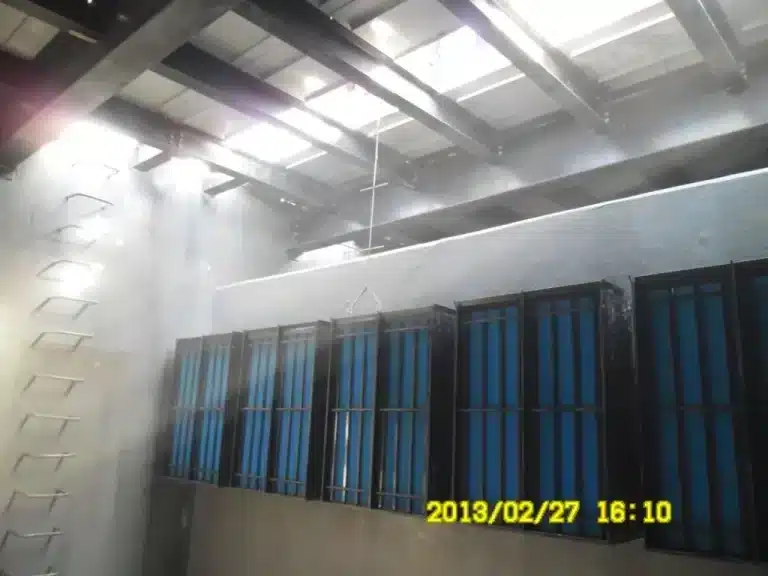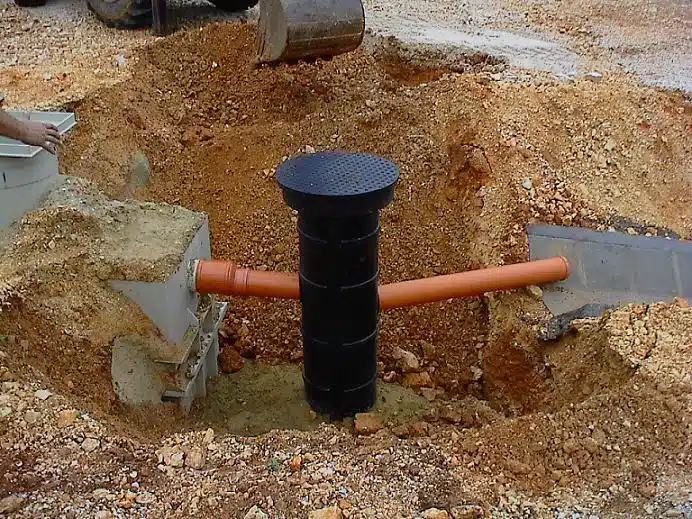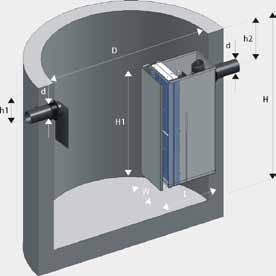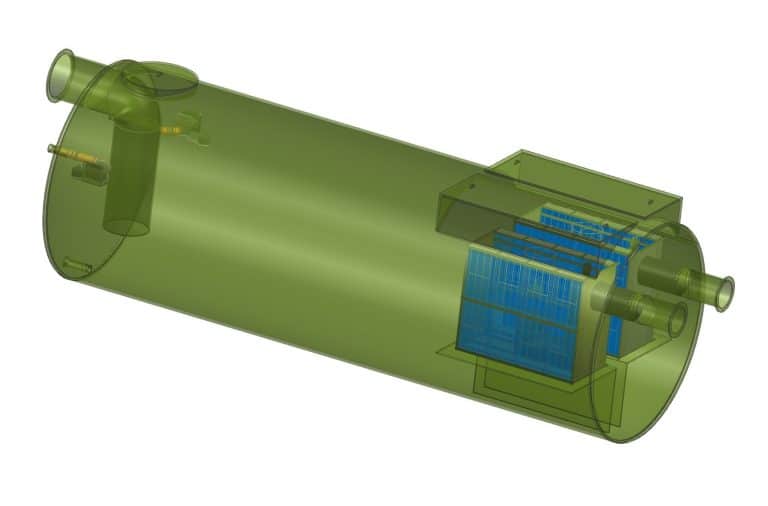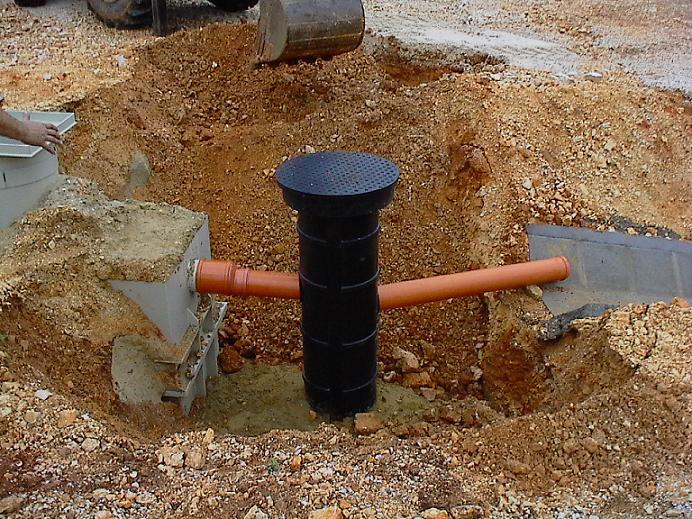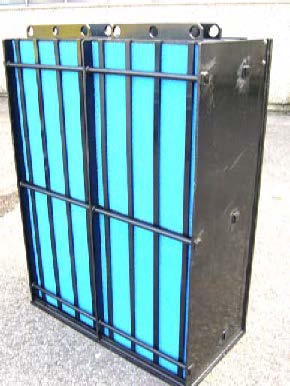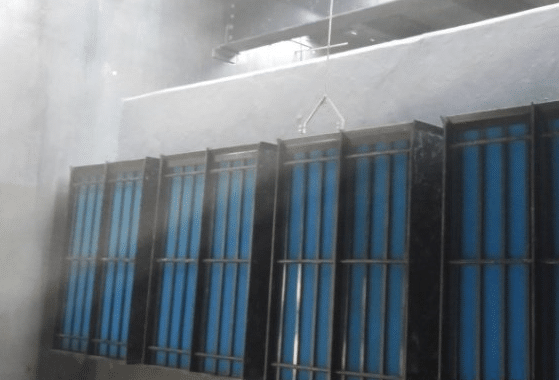Ever wondered how Massachusetts keeps its waters clean despite the busy industries and urban growth? The answer might be hidden beneath your feet. Below Ground Oil Water Separators (OWS) are changing the game in wastewater management across the Bay State. They offer a discreet yet powerful way to fight oil contamination.
Massachusetts Below Ground OWS systems are a big deal for environmental protection. These underground setups are designed to handle the toughest wastewater issues. From Boston’s busy harbors to Worcester’s industrial areas, these systems work hard to protect our waterways.
Freytech Inc. is leading the way with their Below Ground Oil Water Separators. Their systems have a top-notch separation efficiency of 5 PPM. They use advanced coalescing technology. This means they can split various hydrocarbons, like motor oil, diesel, and even jet fuel, from wastewater.
Key Takeaways
- Below Ground OWS systems are key for managing wastewater in Massachusetts
- Freytech Inc. offers high-efficiency separators with 5 PPM capability
- These systems can handle various hydrocarbons, from motor oil to jet fuel
- Subsurface installations save space in urban areas
- Underground structures comply with and exceed API 421 requirements
Understanding Below Ground Oil Water Separators in Massachusetts
Massachusetts has special challenges in handling its wastewater. Below ground oil water separators are key in solving these problems. They are a big part of the underground systems that protect the environment in Massachusetts.
What are Below Ground OWS?
These devices are made to take oil and grease out of wastewater. They work by using gravity and special chambers to separate the bad stuff. These systems are a big part of how Massachusetts keeps its water clean.
Importance in Massachusetts’ Wastewater Management
In Massachusetts, these separators are crucial for cleaning wastewater from different sources. They keep rivers, lakes, and groundwater safe from pollution. By removing oil and grease, they make sure the water that gets discharged is clean.
Regulatory Compliance and Environmental Benefits
Massachusetts has tough rules for handling wastewater. Below ground OWS help businesses and cities follow these rules. They lessen the harm that industrial and city activities can do to the environment. By using these systems, Massachusetts stays ahead in taking care of the environment.
Features and Benefits of Underground OWS Systems
Underground oil water separators (OWS) are key in Massachusetts’ hidden utility networks. They provide top-notch solutions for secret city services. This ensures clean water in busy areas.
High-Efficiency Separation Technology
These systems use the latest tech to catch oil droplets as tiny as 20 microns. This means they keep water clean in Massachusetts’ secret projects.
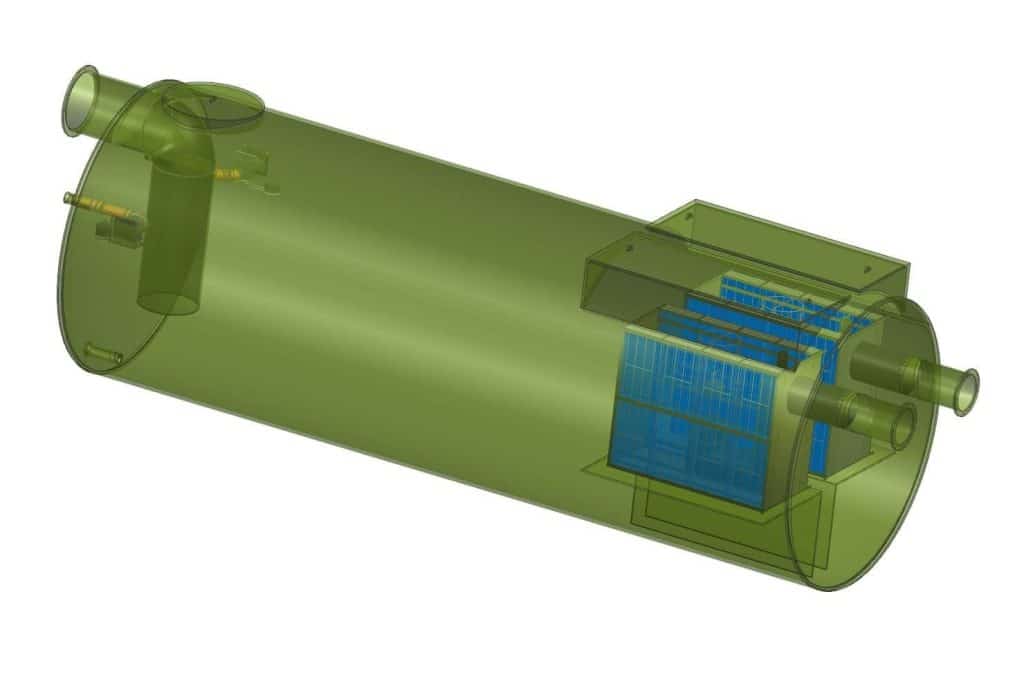
Space-Saving Design for Urban Areas
In crowded Massachusetts cities, space is hard to find. Underground OWS systems are a smart choice. They fit right into the city’s layout without taking up much room. This lets them handle wastewater treatment without taking up too much space.
Durability and Long-Term Performance
These systems are made to last, with options for single or double walls and leak detection. They come with a 30-year warranty against rust. This makes them a solid choice for keeping Massachusetts’ water infrastructure running smoothly for years.
Massachusetts Below Ground OWS: Applications and Industries
Below Ground OWS systems are key in Massachusetts’ secret civil engineering projects. They are used in many industries and places. From cities to industrial areas, they manage wastewater well.
Industrial Facilities and Manufacturing Plants
In industrial areas, Below Ground OWS systems are vital. They treat wastewater from storing bulk petroleum and manufacturing. These systems separate oil from water, meeting environmental rules. Many factories in Massachusetts depend on these systems to prepare their wastewater for discharge.
Transportation Hubs and Automotive Services
Transportation hubs like airports and bus stations gain a lot from Below Ground OWS. These systems deal with runoff from aircraft and vehicle fueling, stopping oil pollution. Automotive service centers in Massachusetts also use these separators for washing and maintaining vehicles.
Municipal Stormwater Management
Cities and towns in Massachusetts use Below Ground OWS for stormwater management. These systems filter out oil and pollutants from rainwater. By using these underground separators, cities protect their water and keep the environment healthy.
Installation and Maintenance of Subterranean OWS in Massachusetts
Installing underground structures in Massachusetts needs careful planning and following local rules. It begins with preparing the site well. This ensures the right spot for subterranean wastewater systems. Excavation must consider soil type, water underground, and nearby utilities.
After setting them up, keeping these systems running well is key. Many underground structures in Massachusetts have big rectangular manways with panels that come off. This makes it easy to check and clean important parts like coalescers and screens.
Keeping subterranean wastewater systems in good shape means removing solids, checking for leaks, and making sure everything works right. Some systems have grit chambers for dealing with lots of solids. This cuts down on how often you need to clean them out.
Advanced tech like leak detectors and level indicators helps keep an eye on the system’s health without needing to check it often. These tools make upkeep easier and help avoid big problems. With the right care, underground structures in Massachusetts can last for many years. They help manage wastewater efficiently in different industries.
These separators are crucial in storm water systems. They process runoff to meet the US EPA’s Clean Water Act standards. With effective oily water treatment, facilities protect the environment and dodge big fines.
Conclusion: The Future of Underground Wastewater Treatment in Massachusetts
Massachusetts Below Ground OWS systems are changing the way we treat wastewater. They are efficient and save space, making them great for cities and industrial areas. This makes them perfect for urban and industrial use.
With tougher environmental rules, Below Ground Oil Water Separators will be key. They help businesses and cities follow the rules. Their technology makes sure the water is clean, protecting Massachusetts’ water resources.
These systems are durable and easy to maintain, making them a smart choice for managing wastewater over time. As more places use Below Ground OWS, Massachusetts is leading the way in green water treatment. It’s setting an example for other states to follow.
Looking ahead, Massachusetts Below Ground OWS will keep getting better with new technologies. This will help protect the environment and keep our waterways clean for the future.

